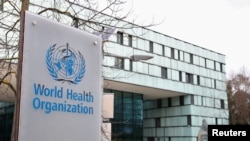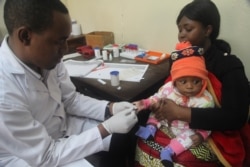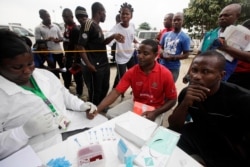The COVID-19 pandemic has disrupted essential health services in nearly every country, according to a new survey by the World Health Organization.
Low- and middle-income nations are affected the most.
This will likely add additional public health burdens to the toll from the disease caused by the coronavirus, WHO said.
Among the 105 countries that responded to the survey, 90% reported at least partial disruption in at least one of 25 essential services. More than half reported interruptions in cancer diagnosis and treatment. Malaria programs were affected in nearly half of countries; tuberculosis in more than two-fifths; and HIV treatment in one-third.
Low-income countries bear the brunt of the impacts. Among countries reporting disruptions to at least 75% of essential services, nearly half were low-income. Just 4% of high-income countries reported this level of disruption.
The services most commonly disrupted were outreach programs for routine immunizations, which were affected in 70% of responding countries, followed by diagnosis and treatment of non-communicable diseases such as heart disease or diabetes (69%), family planning and contraception (68%), and mental health treatment (61%).
Critical emergency services were disrupted in nearly one-quarter of countries reporting, including emergency departments in 22% of countries, blood transfusions in 23% and emergency surgery in 19%.
The "great majority" of disruptions were partial, affecting between 5 and 50% of services, the survey said.
The survey "reveals that even robust health systems can be rapidly overwhelmed and compromised by a COVID-19 outbreak," a WHO statement said.
North America, South America and the Caribbean were not included in the analysis, “(o)wing to the high transmission status of COVID-19 and limited capacities at the time of the survey," the report said.
The new data is the most thorough assessment of the effects of the COVID-19 pandemic on health services. WHO has previously warned about declines in vaccination drives, disruptions to non-communicable disease services and impacts on access to HIV medications.
Disruptions to most HIV, TB and malaria programs in low-income countries supported by The Global Fund, a public-private partnership, have been reported. One study estimated that deaths from these diseases over the next five years could increase by 10%, 20% and 36%, respectively.
The findings are based on questionnaires WHO officials sent in May to 159 countries, 105 of which responded. Most responses were received in May and June, with a few arriving in July.
The report says countries are beginning to adapt. Most have instituted triage procedures to identify priority cases. Telemedicine is on the rise, where possible. About half of countries have found novel ways to dispense medications.
Efforts to document and learn from what works in different settings "are urgently required," the report said.









